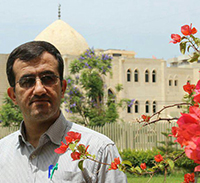Must & Must Not(s) in Expert Evaluation
Hamid Qazvini
Translated by Natalie Haghverdian
2019-2-5

Usually, in any oral history project, interviewing is evaluated before the final text is formulated. At this stage, managers or project experts have seen the interview and evaluated it.
The following are methods of interview expert evaluation:
- In addition to scientific nobility on the subject, the expert must have a good understanding of the oral history interview and its characteristics. Otherwise, why some of the questions and techniques used in the interview will not be known and will result in faulty evaluation. The expert should appreciate that the text is not final, and until the release, it will encounter information and reformation. Unfortunately, there are cases in which the expert, due to lack of knowledge and competence in oral history methodology, conducts a faulty evaluation and exposes the project to complications.
- One of the tasks of the expert is to determine the degree of loyalty of the text to the main subject and to have a logical cognition of the relevance of the sub-topics to the main subject. There are many experts who focus on the main subject, and consider the sub-topics to be irrelevant. For example, if the narrator, in expressing political memoirs, refers to the cultural and social background of his city, the experts consider such discussion to be irrelevant to the subject matter. While any political activity is formed in a cultural and social context and is not strange to the process of struggle.
- Sometimes, during an interviews, questions and answers are repeated, and some experts view it as a weakness, while the interviewer's goal is to achieve a more complete answer by repetitions.
- Each narrative is associated with some analyzes, which in a way demonstrates the narrator's view and attitude to various historical phenomena. The insistence of experts on recording memories without any analysis is not always possible.
- Exaggerations and contradictions in the memoirs are common and do not necessarily reflect untruthfulness of the narration. The expert must acknowledge it and do not consider it a catastrophe. These matters can be corrected through research and dialogue with the narrator and the constructive interaction with them.
- The essence of oral history is in the plurality and diversity of narratives and differences, and sometimes in contradictions. The experts shall not worry and expect the production of a narrative consistent with the previous narratives or in accordance with the written literature.
- In text evaluation, the experts must put their personal tastes and political and party and even organizational affiliations aside and focus on the historical truth and narration accuracy. Unfortunately, in many cases, there are experts who try to impose their personal, political, and sometimes organizational point of views on the interview and hinder the freedom of the interviewer. In the long term, in spite of all costs and efforts, such impositions will affect the credibility of the materials produced and lead the researchers to other sources.
Number of Visits: 4914








The latest
- Third Regiment: Memoirs of an Iraqi Prisoner of War Doctor – 17
- Oral History News of December-January 2026
- Analyzing the Impact of Sacred Defense Memories on the New Generation: Usage in Transmitting Values
- The Sha‘baniyya Uprising as Narrated by Ali Tahiri
- 100 Questions/16
- Third Regiment: Memoirs of an Iraqi Prisoner of War Doctor – 16
- 100 Questions/15
- Comparison of Official (Institutional) Oral History with Unofficial (Popular/Personal) Oral History
Most visited
- Comparison of Official (Institutional) Oral History with Unofficial (Popular/Personal) Oral History
- The Three Hundred and Seventy-Third Night of Remembrance – Part One
- Third Regiment: Memoirs of an Iraqi Prisoner of War Doctor – 15
- 100 Questions/15
- Third Regiment: Memoirs of an Iraqi Prisoner of War Doctor – 16
- The Sha‘baniyya Uprising as Narrated by Ali Tahiri
- 100 Questions/16
- Analyzing the Impact of Sacred Defense Memories on the New Generation: Usage in Transmitting Values
Oral History of 40 Years
One of the main hypotheses regarding the reason for the growth and expansion of oral history in the modern era relates to the fact that oral history is the best tool for addressing lesser-known topics of contemporary history. Topics that, particularly because little information is available about them, have received less attention.Omissions in the Editing of Oral History
After the completion of interview sessions, the original recordings are archived, the interviews are transcribed, proofread, and re-listened to. If the material possesses the qualities required for publication in the form of an article or a book, the editing process must begin. In general, understanding a verbatim transcription of an interview is often not straightforward and requires editing so that it may be transformed into a fluent, well-documented text that is easy to comprehend.100 Questions/8
We asked several researchers and activists in the field of oral history to express their views on oral history questions. The names of each participant are listed at the beginning of their answers, and the text of all answers will be published on this portal by the end of the week. The goal of this project is to open new doors to an issue and promote scientific discussions in the field of oral history.The Role of Objects in Oral Narrative
Philosophers refer to anything that exists—or possesses the potential to exist—as an object. This concept may manifest in material forms, abstract notions, and even human emotions and lived experiences. In other words, an object encompasses a vast spectrum of beings and phenomena, each endowed with particular attributes and characteristics, and apprehensible in diverse modalities.

